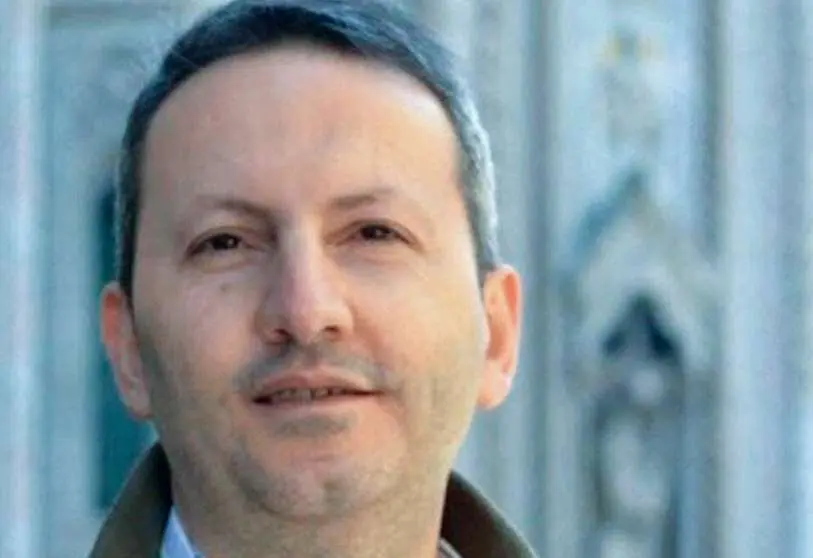Iran sets date for death sentence of Swedish-Iranian professor Ahmadreza Djalali

As alarms are growing over the increasing number of death sentences in the Persian regime, and as negotiations to revive the Joint Comprehensive Plan of Action (JCPOA) on Tehran's nuclear armament seem to slow down more and more, the Iranian news agency ISNA has made public a new and controversial decision of the Islamic Republic: the execution of the Swedish-Iranian professor Ahmadreza Djalali.
Arrested during an academic visit to the country in April 2016, Djalali was accused of spying for the Mossad - the Israeli intelligence service - to whom he allegedly provided information on several high-level nuclear scientists who were killed. In late October 2017, after a trial deemed unfair by several international human rights experts and a "forced confession," the professor was sentenced to the death penalty by the Iranian Supreme Court.
"Djalali was forced to confess under torture," denounced, at the time, Amnesty International, in line with Djalali's wife, who rejected the charges against her husband.

During the more than five years that have passed since his imprisonment, international human rights organizations have condemned the fact that the professor has been subjected to long periods of solitary confinement. In fact, it was not until seven months into his imprisonment that Djalali's lawyer was able to visit him, and even the United Nations has now called for his release due to his serious physical and mental health problems.
Due to his long academic and working career at European universities such as the Free University of Brussels, the University of Eastern Piedmont or the Karolinska Institute in Stockholm, - and despite being exclusively originally from the Islamic Republic -, in 2018 Sweden granted Djalali dual Swedish-Iranian citizenship.
However, several voices have criticized that the announcement of Djalali's execution on May 21 is nothing more than another effort by Tehran to motivate the exchange between dual nationals imprisoned in the country and Iranian citizens detained abroad.

According to the Belgian daily De Morgen, after Djalali's transfer to Section 209 of Evin Prison - where he was isolated - at the end of last year, the professor's lawyer received a message from the prison announcing that Djalali's execution would take place a week later. Coincidentally, parallel trials against Iranian terrorism were taking place in Belgium at the same time. Citizen protests eventually derailed the execution plans, but the idea that the Islamic Republic intended a prisoner exchange had already been planted.
Now, while the court of appeal in Antwerp considers the case of three Iranian terror suspects, former Persian prosecutor Hamid Noury faces a possible life sentence in the Stockholm courts in Sweden. "They don't even bother to hide it," said an acquaintance of Djalali and emergency physician at the UZ in Brussels, Gerlant Van Berlaer, for the daily De Morgen. "On the eve they announce that he will be executed on May 21. That is simply increasing the pressure to influence the court ruling, it is no coincidence."

To this has also been added the 20-year sentence against Iranian diplomat Assadolah Assadi by the Belgian courts. Something about which De Morgen picked up that the Persian authorities expressly offered, expressly, an exchange for Djalali. "If they execute Djalali, then they have to look for another exchange," said Van Berlaer.
At the same time, the Stockholm courthouse today hosted the last session of Hamid Noury's trial. The former Iranian official was arrested in 2019 by Swedish authorities and is accused of committing international war crimes and human rights violations against political prisoners while serving in Gohardasht prison in Karaj during 1988.
Last 2021, the UN's chief investigator for human rights in Iran called for an independent investigation into the executions ordered by Tehran in 1988 and the role played by the current president, Ebrahim Raisi, as deputy prosecutor.
Now, the Amnesty International organization has claimed that the number executed by Noury could be around 5,000, although a report published by the organization itself in 2018 admitted "that the true number could be much higher." For its part, the Swedish prosecution has explained that most of his victims would be "People's Mujahideen of Iran" - an opposition group considered a terrorist group by the Persian government.

If convicted, Hamid Noury may now face the maximum life sentence because Swedish law allows both Swedish and foreign nationals to be tried when they are accused of committing crimes against international law. Even if these are committed outside the country.
However, Amnesty International director Wies De Graeve's position has also argued for the possibility that this situation is not just an attempt at Iranian blackmail. "We are assuming that. But while dual citizenship inmates are sometimes used as small change for prisoner swaps or to release frozen Iranian credits, we cannot guarantee whether that is the case here," the director explained.
"Unfortunately, yes we can say that their situation is symbolic of how repression works. Anyone who is not in line will feel the iron fist of the regime. According to Djalali, people like him, with an extensive international network, are often contacted by the Iranian government for spying. And those who refuse face repression."








